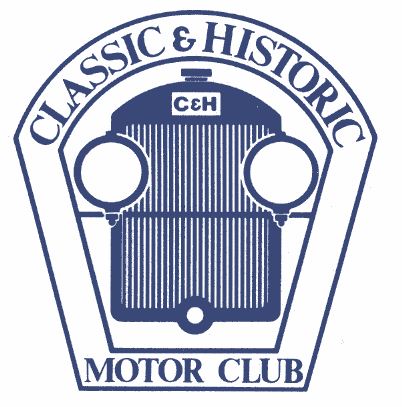Classix is the C&H’s monthly magazine issued free to all club members. It contains among other things news of forthcoming events, reports and photos of recently held events, club calendar, for sale/wanted ads etc.
Below you will find an article from a recent edition.
FBHVC News
Mark Curtis (our new FBHVC Representative)
AFTER a good discussion with Roger Dollins over a nice cup of tea and some cake (coffee & walnut, my favourite), I agreed to offer support for fellow Club members with regular feedback from the FBHVC (Federation of British Historic Vehicle Clubs). My first task has been remembering the meaning of that acronym, shared here for the benefit of others.
At present, one of the important topics that matters to most classic car owners is the recent changes to the fuel additives, specifically to petrol, from the 1st September, 2021. (Diesel currently remains unaffected). Once upon a time (not long ago), the only two items I needed to remember when I pulled into a service station for fuel were:
- Is my car petrol or diesel?
- Which side of the car is the filler cap?
After speaking to a few people, I now understand that I am not alone in the third question:
- Which pump within the service station is delivering E5?
At busy times this third question can create additional problems when committing to a queue. According to FBHVC at least 21 million people in Britain see historic vehicles as an important part of our heritage, therefore I hope they will also forgive us when they experience classic cars owners manoeuvring between pumps seeking out the higher-octane fuel.
Although many parts of the USA and countries within Europe have already adopted ethanol additives to petrol for some time (including the 10% mix E10), we as UK classic car owners now need to be aware of this new fuel and the potential impact to our vehicles. Around 700,000 historic classic cars were registered in 2020 and over 20% of these are from original manufacturers that no longer exist. For those owners that can still consult the original brand it is worth checking on their guidance for running the vehicle with E10.
Earlier this month, FBHVC published an update on the E10 fuels, along with some guidance for classic car owners. I have posted the link to that article (below) within the online Facebook group.
I have captured some important items from that FHBVC report below. “Petrol pumps now show new labels designating the grade, the maximum ethanol content and an advisory cautionary notice. For some time, service station pumps have had E5 and B7 labels consistent with the BS EN16942 standard”.
“If your petrol vehicle or equipment is not compatible with E10 fuel, you will still be able to use E5 by purchasing the ‘super’ grade (97+ octane) petrol from most filling stations”. “It should be noted that some Super E5 Protection grade fuels do not contain ethanol, as the E5 designation is for fuels containing up to 5% ethanol. To re-iterate, product availability varies by manufacturer and geographical location”.
“The Federation recommends that all vehicles produced before 2000, and some vehicles from the early 2000s that are considered non-compatible with E10, should use the Super E5 Protection grade where the ethanol content is limited to a maximum of 5%”.
What happens if I fill up with E10 by accident? “Don’t panic – your car will continue to run; just fill up with E5 at the next opportunity and avoid storing your vehicle for long periods with E10 fuel”.
Using E10, what can we do? “The most important thing is to ensure your fuel system components are regularly inspected and renewed as part of a routine maintenance programme for your historic vehicles. Ultimately, owners should look to renew fuel system components such as hoses, seals and gaskets with ethanol safe versions as a long-term solution and more of these are entering the market through specialists every day”.
Additional information on vehicle compatibility issues is available on the FBHVC website https://fbhvc.co.uk/fuels.
If you have more than one vehicle, including cars which can run on E10 fuel, it might be helpful to place a suitable E5 aide-mémoire in or on your classic vehicle at an appropriate point.
I hope you found this information helpful. I look forward to providing further updates from the FBHVC.
Mark
